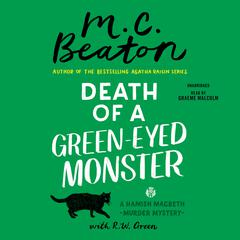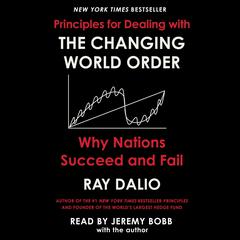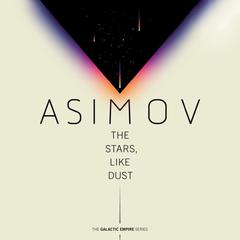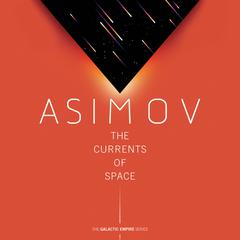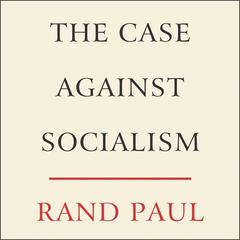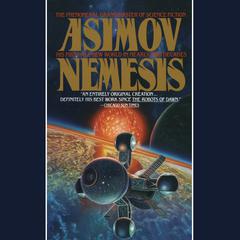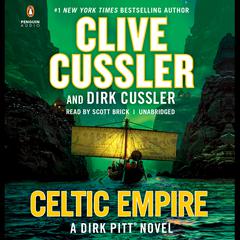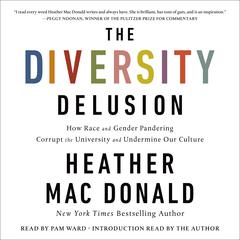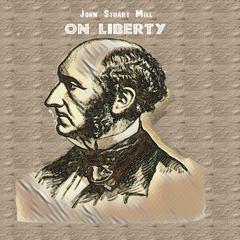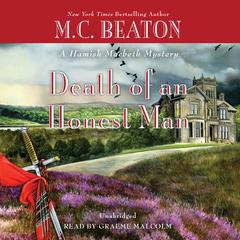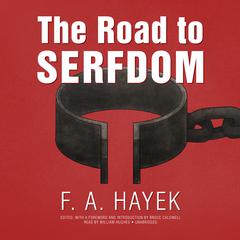 Play Audiobook Sample
Play Audiobook Sample
Ethics Audiobook
 Play Audiobook Sample
Play Audiobook Sample
Quick Stats About this Audiobook
Total Audiobook Chapters:
Longest Chapter Length:
Shortest Chapter Length:
Average Chapter Length:
Audiobooks by this Author:
Publisher Description
Benedict de Spinoza's Ethics, first published in 1677, constitutes a major systematic critique of the traditional and religious foundations of philosophical thought. In it, Spinoza follows a logical step-by-step format consisting of definitions, axioms, propositions, proofs, and corollaries to create a comprehensive inquiry into the truth about God, nature, and humans' place within the universe. From these broad metaphysical themes, Spinoza derives what he considered to be the highest principles of religion and society and lays out an ethical system in which reason is the supreme value. A seminal contribution to 17th-century rationalism, Spinoza's Ethics refutes the dualism of René Descartes and provides a bridge between religion and modern-day psychology. This edition is the translation by R. H. M. Elwes.
Download and start listening now!
"I idealized philosophy as the art of progressing from mundane, obvious facts to grand cosmic conclusions, all made unanswerable through the authority of logic. I now see that this is a fantasy of philosophy, though never more alluring than in Spinoza's Ethics. In a relatively small book patterned after Euclid's Elements, Spinoza lays claim to not only deep knowledge of the universe, but certain knowledge. It is difficult to keep from being swept up in Spinoza's audacious project. Here, he proves God exists. (But a God that pays us no mind). There, Spinoza dispels all contingency from the universe. (But insists on individual moral responsibility). Good, evil, freedom, knowledge, and fate... Spinoza hits all the fundamental issues in rapid-fire. In the years since, load-bearing elements of his logical process have been debunked. More important to me, his bottom line conclusions are totally unworkable. If life is just a matter of watching the necessary unfold, action and commitment would be drained of all dignity. As stunning as Spinoza's work is, it supports only one mode of life (the contemplative) and fails as a complete model for human endeavor. Essential but not sufficient."
— Paul (5 out of 5 stars)
Ethics Listener Reviews
-
" I remember being fascinated by this as I read it: a system of ethics getting demonstrated logically. Like math! And I think you'll only enjoy it if you're also a math/logic geek. But... even if not, it's a fascinating tour of the brainpaths inside the weirdest lens-grinder who ever lived. "
— Mark, 1/31/2014 -
" There are some excellent parts but overall too formalistic and abstract for me to grasp. You should be pretty smart to read this one. "
— Aaron, 1/31/2014 -
" I'm not sure which edition/translation of this book I read... The book's title is somewhat misleading,as what Spinoza presents his his own system of happiness from first principles. He asks the question "what is the greatest good and how to achieve it?" and tries to answer it using a rigorous axiomatic method. Unfortunately, at times he seems to play word games (like his definition of God), makes leaps of logic and uses terms in a different way, which hinders understanding. If you read any edition of this book, I recommend one that includes some of his shorter letters, as they help provide a snapshot view of where he is trying to go, which can aid in understanding this work. "
— Ronny, 1/28/2014 -
" Will finish reading Spinoza later. Read part one and did not care for it much. One has to enjoy Spinoza immensely in order to decipher through all his proofs and dense writing style. "
— Zarakoda, 1/5/2014 -
" Even though the book is titled 'Ethics', most of what Spinoza discusses in this text is now referred to as Metaphysics. i love it! "
— John, 12/26/2013 -
" Spinoza introduces his idea that God and the universe are one and the same, meaning that God has both a spiritual and a physical nature, and that every human is a piece of God. "
— eesenor, 12/21/2013 -
" Trop puissant. bien sur je pense qu'une grande partie de sa theorie m'echappe et m'chappera toujours... "
— Cornélia, 11/20/2013 -
" My favourite philosophy text of all time! "
— Laura, 11/17/2013 -
" I would have given it four stars but it's hard to read. Surely not my fault. "
— Zach, 10/25/2013 -
" One of the most comprehensive books on ethics I have ever read. Spinoza is ones of the worlds great free-thinkers! "
— Steven, 10/22/2013 -
" Reading this (again). Spinoza's third kind of knowledge as something radically irreducible to cap[italism's axiomatics? "
— Simon, 10/15/2013 -
" Deserves to be re-read again and again, both the postulates and the proofs. A beacon to look to whenever feeling lost. "
— Louise, 7/24/2013 -
" Read the first 2 chapters, take it up sometimes, read a few pages. I think it is brilliant, but it's no easy reading. A lot of flipping back and forth. Imagine this guy in his own time. "
— Alert, 5/11/2013 -
" In the words of Schleirmacher: "Spinoza... the exiled wholy man whose essence was The Inifinite". "
— Boris, 4/5/2012 -
" Although the format is weird, written in geometric style, the work is very comprehensive, and still very relevant to modern discussions on several topics. A classic of western philosophy and a great example of the transition between medieval and early modern thought. "
— Justin, 2/28/2012 -
" Like a graduated version of Descartes's ontology, only much cleaner. And he's a Jew! Well, an excommunicated Jew. "
— Andrew, 1/15/2012 -
" Possibly one of the most difficult books I've ever read, which is saying a lot since i was a philosophy minor, but once I got it, it was boggling. "
— Maureen, 9/18/2011 -
" A beautiful idea about ethics. "
— Jonny, 8/29/2010 -
" It's something that I advise many to read if that topic means something 2u. "
— Dory, 7/4/2010 -
" one of formidable works for recognising the history of modern philosophy. "
— Kei, 2/5/2010 -
" My favorite Philosophy book probably ever. Spinoza's Conception of God is one that even I can handle. His logical proofs are mind-numbingly beautiful as he explains an interesting form of determinism that I as of now, I am still unable to shake. "
— Dconst3, 11/21/2009 -
" Unfortunately, either my preferred edition (from the Everyman Library) either isn't here or doesn't have an image. But this book may be my favourite work of philosophy, so why quibble? Beautiful, profound, wise and moving... if you can get through it. "
— Ian, 10/7/2009 -
" I have great respect for Spinoza, but reading him makes my head hurt. "
— Sean, 7/6/2009 -
" Not my cup of tea. He makes all the mistakes Descartes made while being only slightly more interesting. "
— Ian, 4/9/2008 -
" A sublime picture of the university and humanity's place within it. Even after discarding the outmoded ontology Spinoza utilizes, there is quite a bit that one can keep as a viable philosophy, if one were so inclined. "
— Jack, 12/26/2007 -
" A reasonable faith depends on "our willingness to disband the temporal certainties for the permanent possibilities." Spinoza's view from nowhere is a scientist's heaven. This book is now crammed into my nightstand collection, along with other sacred texts. "
— Christine, 8/19/2007 -
" My favorite book of philosophy, he is not brief, but does cover basically everything. Eat your heart out Kant... "
— Jaimi, 5/25/2007
About Benedict de Spinoza
Benedict de Spinoza (1632–1677) was a Dutch philosopher who came to be known as one of the great rationalists of the seventeenth century. Born into a Portuguese Jewish community in Amsterdam, Spinoza was excommunicated from this society at age twenty-three. His most famous work, Ethics, was published posthumously; he is also the author of the Theological-Political Treatise, published in 1670. Spinoza’s work laid the groundwork for the eighteenth-century Enlightenment and modern biblical criticism, and has influenced such wide-ranging later thinkers as George Eliot, Freidrich Nietzsche, Immanuel Kant, and Albert Einstein.
About Antony Ferguson
Antony Ferguson, Earphones Award–winning narrator, was born in London. He has performed successfully on both sides of the Atlantic and has played many leading roles in theater, film, and television.




